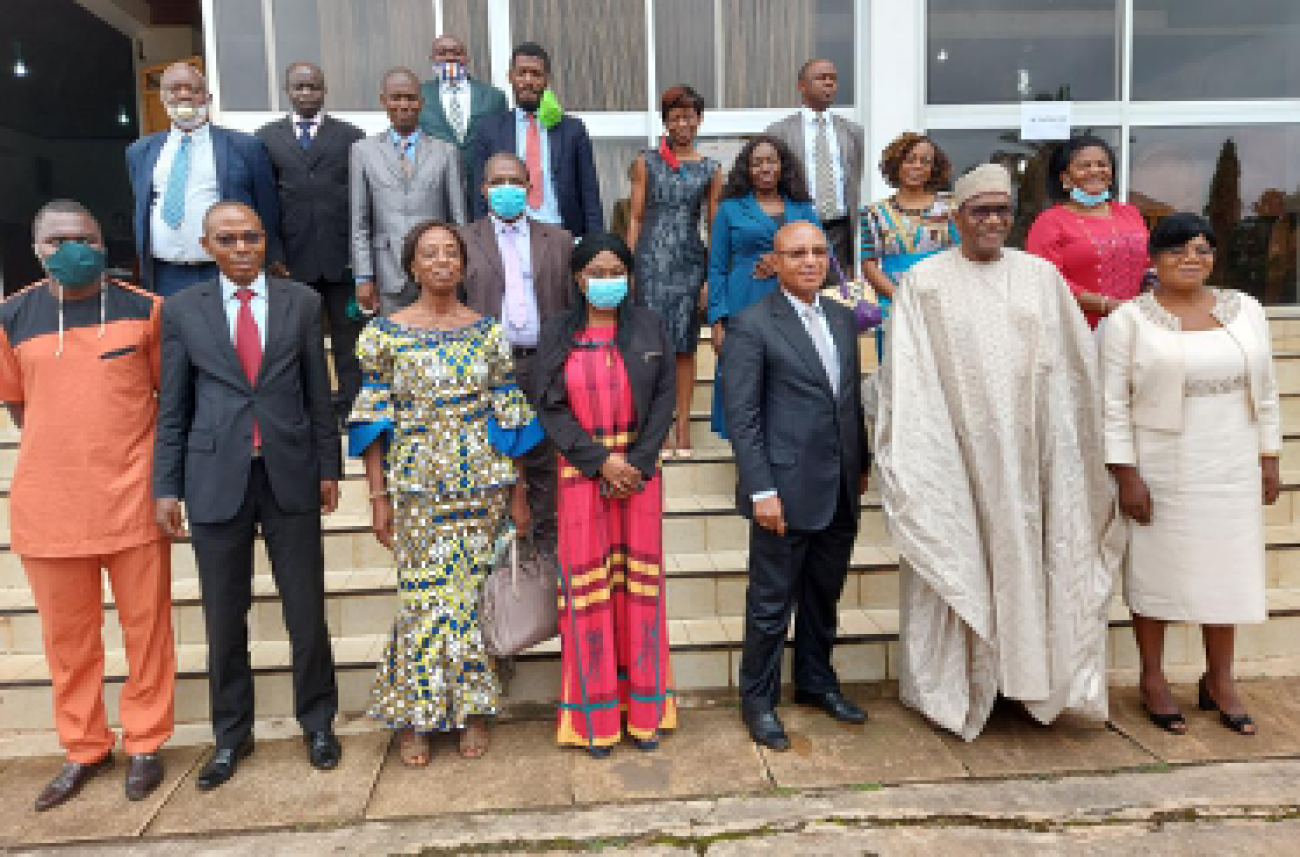The "Women Count" Program is funded by UN Women and has since 2017 been implemented in 12 countries.
The 2020 first session of the Inter-ministerial Committee on Gender Statistics in Cameroon was organized at Hôtel Azur in Yaoundé, on July 30th 2020, to update its members on the implementation of the Making Every Woman and Girl Count Project during the year 2020. The Meeting was chaired by the Secretary General of the Ministry of Women Empowerment and Family and Co-Chaired by the Director General of the National Institute of Statistics. The Inter-ministerial Committee provides its members with strategic orientations to improve the production and use of gender statistics for a better monitoring of the Sustainable Development Goals and the National Gender Policy. The Committee was established within the "Women Count" Program, a Flagship Global Program, funded by UN Women and implemented since 2017 in 12 countries. It is currently implemented in Cameroon, in partnership with MINPROFF, INS, BUCREP, and several other entities with the overall objective of making gender statistical data available, accessible, analyzed and used, to inform policies, advocacy and accountability to promote gender equality and the empowerment of women.
The working session began with the address of Mr. Moussa AOUDOU, Secretary General of the Ministry for the Promotion of Women and the Family (MINPROFF) and Chairman of the Committee, in the presence of Mr. Joseph TEDOU, Director General of the National Institute of Statistics and Vice-Chairman of the Committee. In his speech, he recognized the importance of the Women Count project in improving the availability and the use of gender statistics in Cameroon and also plead for greater commitments of all stakeholders to achieve the expected results.
Mr. MENGATA Pierre Debret, Sub Director in charge of Statistics in the Ministry of Women Empowerment and Family and rapporteur of the Committee presented the activity report of the first semester 2020 and the state of implementation of recommendations of the last session. He highlighted the results obtained despite the context of COVID-19 as well as different constraints and difficulties encountered. He also presented the next steps and strategies to overcome the bottlenecks.
After fruitful discussions by all the 17 members who attended the meeting, some key recommendations were adopted in order to improve the program including:
- Prior transmission of documents to Committee members before the date of the meeting;
- Pay an attention to the disaggregation of gender data up to the local level (municipality, department, region) where possible;
- Support the improvement of the quality administrative data according to the approach of the new law governing statistical activity in Cameroon;
- Advocate for the budgeting for gender statistics in all administrations.



